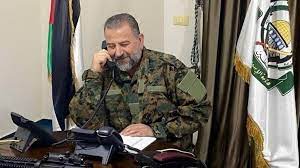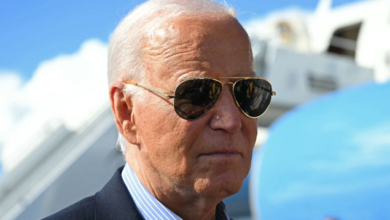Brownstone Worldwide Breaking News: Beirut Blast Claims Top Hamas Military Official

In a shocking turn of events, the recent explosion in Beirut has claimed the life of Saleh al-Arouri, a prominent figure within the ranks of the Palestinian militant group Hamas. The blast, which occurred on Tuesday, also resulted in the tragic deaths of three others, according to officials from both Hamas and the Lebanese group Hezbollah.
Lebanon’s National News Agency attributed the incident to an Israeli drone, marking a significant and potentially escalatory development in the ongoing Middle East conflict. While Israeli officials have refrained from commenting on the matter, the implications of their involvement, if proven, could have far-reaching consequences. Hezbollah leader Sayyed Hassan Nasrallah has already declared a commitment to retaliate against any Israeli targeting of Palestinian officials within Lebanon.
Saleh al-Arouri, a key figure in the founding of Hamas’ military wing, had been leading the group’s presence in the West Bank. His death comes amid heightened tensions, with Israeli Prime Minister Benjamin Netanyahu having previously issued threats against him even before the outbreak of the recent Hamas-Israel conflict on October 7.
The explosion, which rattled the southern suburbs of Beirut, a stronghold of Hezbollah, has further intensified the volatile situation in the region. The blast ignited fires on Hadi Nasrallah Street, underscoring the gravity of the incident.
This tragic event unfolds against the backdrop of over two months of intense clashes between Israeli forces and Hezbollah along Lebanon’s southern border. While the fighting has primarily been concentrated near the border, Israel’s air force has targeted Hezbollah positions deeper within Lebanon on multiple occasions.
Earlier on the same day, Hezbollah claimed responsibility for a series of attacks along the Lebanon-Israel border, specifically targeting Israeli military posts. The sequence of events raises concerns about the potential for further escalation and the impact it may have on an already precarious regional landscape.
As we navigate through these challenging times, it is imperative for all stakeholders to exercise restraint and engage in diplomatic efforts to prevent a further deterioration of the situation. The international community must remain vigilant and actively seek avenues for de-escalation to ensure the stability and security of the region. Our thoughts go out to the families affected by this tragic incident, and we hope for a swift resolution to the complex challenges facing the Middle East.





